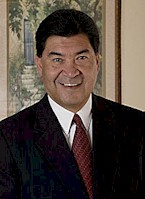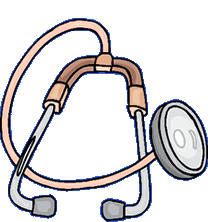Our Staff
 Dr. Campos
Dr. Campos
Dr. Carlos Campos was born and reared in New Braunfels, Texas, where he attended the public schools. He received an Associate of Arts degree from Schreiner University and a Bachelor's degree from Baylor University followed by medical school at Baylor College of Medicine. In addition, Dr. Campos also received a Master's of Public Health degree from the University of Texas School of Public Health.
He completed his Family Medicine residency at the Bexar County Hospital District. He has been in private family medicine practice in New Braunfels since 1984 where he has run the gamut of family medicine, from delivering babies to seeing patients in the nursing home. Presently, he concentrates in disease states related to Type 2 Diabetes Mellitus and is a certified diabetes educator.
Dr. Campos was appointed by the Governor to the Texas State of Medical Examiners and served from 1993 to 1999. In 1993, he was also Chief of Staff McKenna Memorial Hospital in New Braunfels. Currently, he serves as a Clinical Associate Professor for the Department of Family Medicine at the University of Texas Health Science Center at San Antonio.
He has been active in his community both locally and regionally. He served on the board of the New Braunfels Independent School District as its Vice-President and was President of the Alamo Chapter of the American Diabetes Association.
His local awards include
- New Braunfels Independent School District Distinguished Alumni Award 2014
- Certified Diabetes Educator 2012
- Herald-Zeitung Readers Choice Award Best Physician 2005
- Citizen of the Year Award by the the Herald-Zeitung
- Board Award for Health Improvement by the Greater New Braunfels Chamber of Commerce
- Distinguished Service Award by the American Diabetes Association
- Silver Unicorn Award by the New Braunfels Independent School District
 In 2000, Dr. Campos established The Institute for Public Health and Education Research Inc. (TIPHER), a non-profit corporation, for which he serves as Executive Director. TIPHER's mission is to Improve the quality of life by addressing public health needs and critical education issues.
In 2000, Dr. Campos established The Institute for Public Health and Education Research Inc. (TIPHER), a non-profit corporation, for which he serves as Executive Director. TIPHER's mission is to Improve the quality of life by addressing public health needs and critical education issues.
TIPHER was instrumental in building the Westside Community Center (WCC), which Dr. Campos managed until it was acquired by the City of New Braunfels in 2011. The following programs were available under his leadership:
- Diabetes Education Classes
- Westside Nutritional Center (Soup Kitchen)
- GED Classes
- ESL (English as a Second Language) lasses
- Annual Thanksgiving Feast
- BLAST Program (after school tutoring and counseling for high risk students)
- Fiscal Agent of the Drug Free Community Support Program Grant
- The Caring Community Coalition
The TIPHER organization with its outstanding board members serves to "make a difference" not only in peoples lives, but also in the life of the entire community, making the organization a vehicle where critical issues are solved and problems are seen as opportunities to achieve a higher good.

